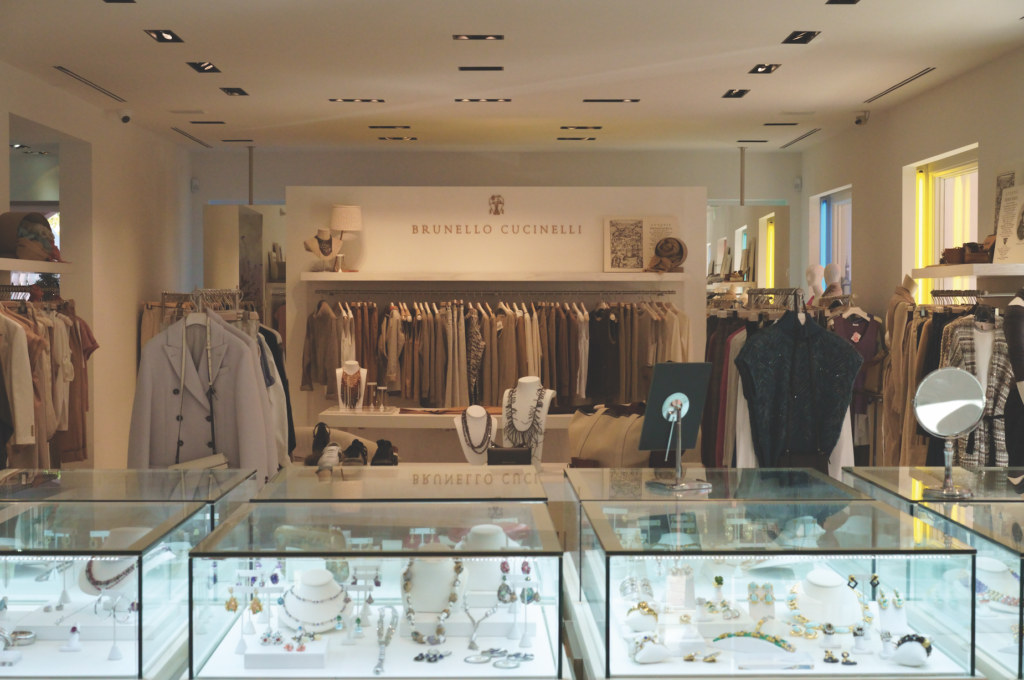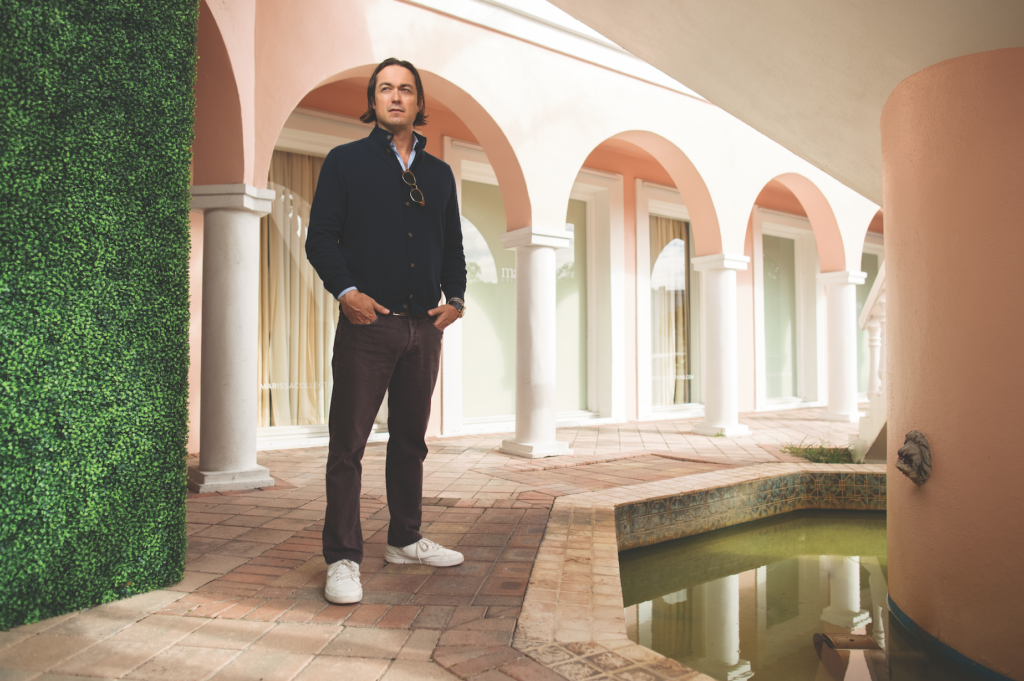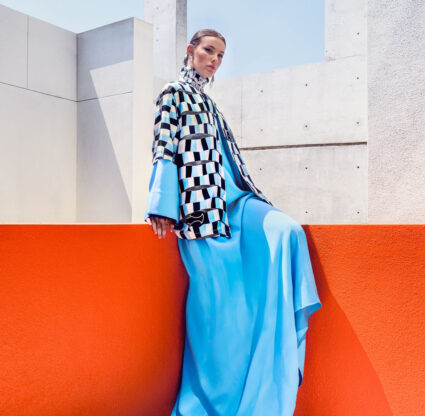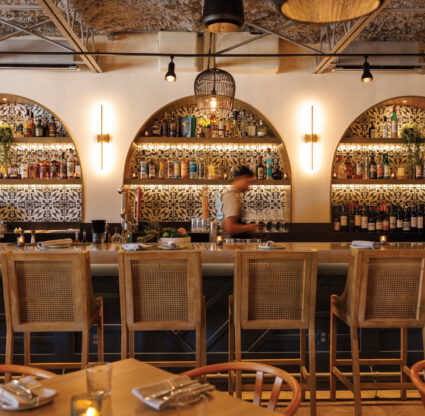The disruption from the coronavirus pandemic appears not to have daunted Jay Hartington, CEO of Marissa Collections, as he leads his family’s 46-year-old business—a next-generation retailer that competes against the likes of Saks Fifth Avenue and Net-a-Porter.
Originally founded by his parents, Marissa and Burt, in 1975, Marissa Collections has evolved from a small boutique into an intelligently curated, designer brick-and-mortar and luxury online shopping destination, all while staying true to its Third Street South roots.
Marissa’s—as loyal fans call the boutique—has long held a prime spot among Naples’ fashion firmament. Clients can recall early days when Oscar de la Renta and Michael Kors would fly down for exclusive trunk shows and runway events. In more recent years, the boutique has also become renowned nationwide for its array of heritage and emerging fine jewelry brands—a side of the business that Hartington has drastically grown.
This didn’t happen overnight, though. About a decade ago when Hartington joined the business, he and the team started to strategically invest in smaller brands that have since evolved into household names, like Anita Ko and Irene Neuwirth. “We started on the journey with these up-and-coming, smaller brands and built excellent relationships early on,” he adds.

Thanks to the help of the boutique’s experienced sales associates (all of whom receive training in trend forecasting and styling, as well from the Gemological Institute of America), Marissa’s appealed to the jewelry brands by creatively styling their designs alongside evening wear and more casual day looks, allowing shoppers to appreciate and shop for finer pieces as part of a daily wardrobe, rather than just for special occasions. (The early focus on blending fine jewelry and everyday wear has also paid off during the pandemic, when clients compensated for the loss of other experiences by treating themselves to beautiful gems, which are also valuable as hard assets.)
Still, it is really the boutique’s relationships that have been the key to its success through the decades. “Marissa Collections is a Naples institution with generational relationships that are core to the foundation of business,” Hartington says. “People like to support people they know. After the coronavirus pandemic, it’s the strong relationships that are going to prevail.” That, and exclusive access to brands, products and experiences, which Marissa’s has long guaranteed for its clients.
Similar strategies are seen at local boutiques, such as Shannon Green Collection, where the owner has exclusive access south of Tampa to the select jewelry labels she stocks, along with offering bespoke design services; at Marilyn’s, with its proprietary line of blouses, shoes, hats and other pieces, along with private fashion seminars and social hours for clients; and at the hyper-curated Remedies Parlor in Fort Myers, which has accessories and home goods, in addition to a tight selection of wines and an outdoor garden that doubles as a bar to engage shoppers and foster community. For the future of retail, it’s the shops that become ingrained in the fabric of the community that will continue to thrive.
At Marissa’s, Hartington sees his leadership role as continuing the relationships cultivated over three decades, while forging new ones and dreaming up innovative ways to engage clients in-store and online.
Earlier in 2020, with increasing lockdown restrictions, Marissa’s shifted to their already established, but growing, online business that had primarily catered to out-of-state and international buyers. With a revamped website, Instagram Live sessions with designers and sales associates already well-versed in virtual styling, Marissa’s could continue to connect with local clientele who couldn’t visit the boutique. And with same-day delivery in its trademark pink van, the shop offered another value proposition that even major retailers couldn’t beat.
It’s not surprising that e-commerce sales grew 110% year-on-year throughout 2020. “The possibilities are endless online,” Hartington says. “In two years’ time, it could grow to over 50% of Marissa’s revenue.”

Recently, the team launched ReVision, a sustainable luxury consignment shop available only online. Through it, they buy gently used designer clothing, shoes and handbags from clients in exchange for a Marissa’s gift card.
The debut reflects the increased interest in sustainable ways of living, including how we shop and dress. “We want to be responsible community leaders,” Hartington says. “It makes good business sense, too—it continues our stylist-client relationships, it gives gently used products a second life and it connects the dots back to Marissa’s.”
A focus on fundamentals may be the thing that spells future success for local fashion purveyors. “A lot of people are moving to Southwest Florida, including younger people. But more people and more affluence does not mean business will be a slam dunk,” Hartington says. “Going back to basics is how fashion businesses will survive and thrive in 2021.”
That means supporting values that are important to shoppers, such as sustainable shopping and fostering community. It also means doubling down on essential everyday wear, since gala season was mostly canceled this season. “We had to quickly reconfigure what that looks like now that people are buying more casual clothing,” Hartington explains. Now, in addition to the Carolina Herrera and Marchesa frocks and classic David Webb jewels, you also see a broader selection of fashion sneakers, leather jackets, on-trend denim and other pieces from younger brands, such as Golden Goose, L’Agence and Buddha Mama.
In the end, Hartington says, it’s simple: “Fashion is servicing a lifestyle.” And for a local, luxury fashion retailer, that lifestyle is about beauty, individuality and connection.
Photography by Brian Tietz





